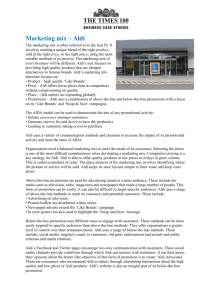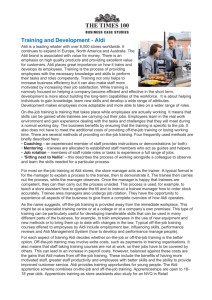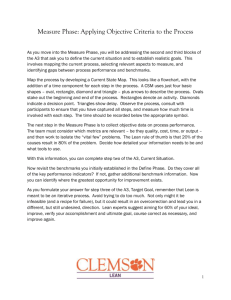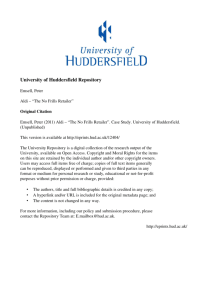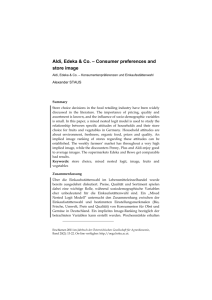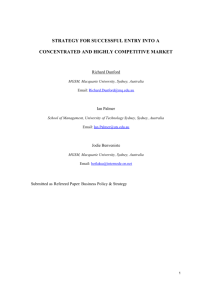Aldi's Lean Production: A Business Case Study
advertisement
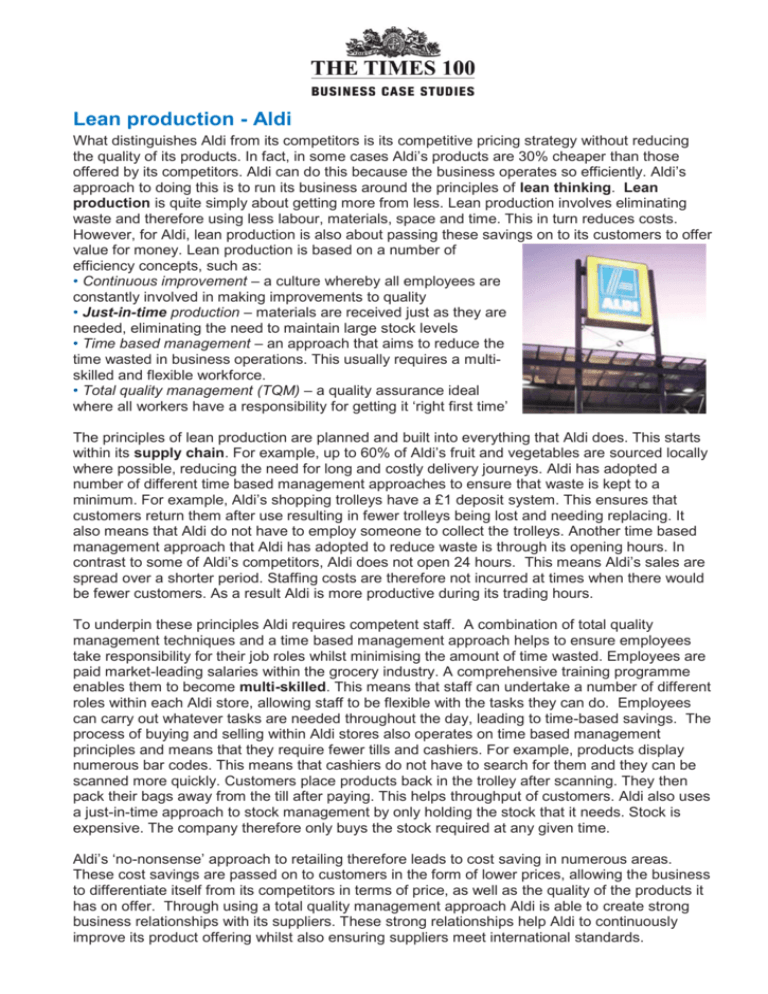
Lean production - Aldi What distinguishes Aldi from its competitors is its competitive pricing strategy without reducing the quality of its products. In fact, in some cases Aldi’s products are 30% cheaper than those offered by its competitors. Aldi can do this because the business operates so efficiently. Aldi’s approach to doing this is to run its business around the principles of lean thinking. Lean production is quite simply about getting more from less. Lean production involves eliminating waste and therefore using less labour, materials, space and time. This in turn reduces costs. However, for Aldi, lean production is also about passing these savings on to its customers to offer value for money. Lean production is based on a number of efficiency concepts, such as: • Continuous improvement – a culture whereby all employees are constantly involved in making improvements to quality • Just-in-time production – materials are received just as they are needed, eliminating the need to maintain large stock levels • Time based management – an approach that aims to reduce the time wasted in business operations. This usually requires a multiskilled and flexible workforce. • Total quality management (TQM) – a quality assurance ideal where all workers have a responsibility for getting it ‘right first time’ The principles of lean production are planned and built into everything that Aldi does. This starts within its supply chain. For example, up to 60% of Aldi’s fruit and vegetables are sourced locally where possible, reducing the need for long and costly delivery journeys. Aldi has adopted a number of different time based management approaches to ensure that waste is kept to a minimum. For example, Aldi’s shopping trolleys have a £1 deposit system. This ensures that customers return them after use resulting in fewer trolleys being lost and needing replacing. It also means that Aldi do not have to employ someone to collect the trolleys. Another time based management approach that Aldi has adopted to reduce waste is through its opening hours. In contrast to some of Aldi’s competitors, Aldi does not open 24 hours. This means Aldi’s sales are spread over a shorter period. Staffing costs are therefore not incurred at times when there would be fewer customers. As a result Aldi is more productive during its trading hours. To underpin these principles Aldi requires competent staff. A combination of total quality management techniques and a time based management approach helps to ensure employees take responsibility for their job roles whilst minimising the amount of time wasted. Employees are paid market-leading salaries within the grocery industry. A comprehensive training programme enables them to become multi-skilled. This means that staff can undertake a number of different roles within each Aldi store, allowing staff to be flexible with the tasks they can do. Employees can carry out whatever tasks are needed throughout the day, leading to time-based savings. The process of buying and selling within Aldi stores also operates on time based management principles and means that they require fewer tills and cashiers. For example, products display numerous bar codes. This means that cashiers do not have to search for them and they can be scanned more quickly. Customers place products back in the trolley after scanning. They then pack their bags away from the till after paying. This helps throughput of customers. Aldi also uses a just-in-time approach to stock management by only holding the stock that it needs. Stock is expensive. The company therefore only buys the stock required at any given time. Aldi’s ‘no-nonsense’ approach to retailing therefore leads to cost saving in numerous areas. These cost savings are passed on to customers in the form of lower prices, allowing the business to differentiate itself from its competitors in terms of price, as well as the quality of the products it has on offer. Through using a total quality management approach Aldi is able to create strong business relationships with its suppliers. These strong relationships help Aldi to continuously improve its product offering whilst also ensuring suppliers meet international standards. Questions 1. What is lean production? 2. List the efficiency concepts that underpin lean production? 3. Explain why having a multi-skilled workforce helps increase Aldi’s efficiency. 4. Analyse why lean production is particularly important for Aldi. Task Make a plan of your average weekday. Can you identify any areas where you waste either time or resources? Using lean principles, work out how you could eliminate waste in your average day. How much time/money have you saved, if any? What have you learned? Ready, steady, GO...write down as many things as you can think of about lean production in 60 seconds.
